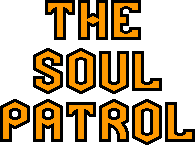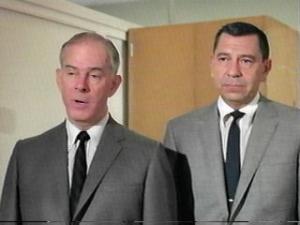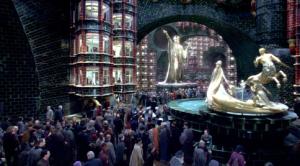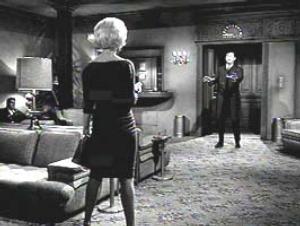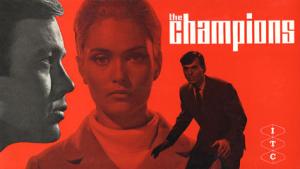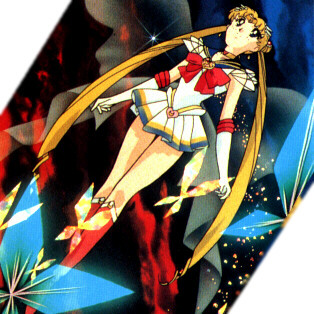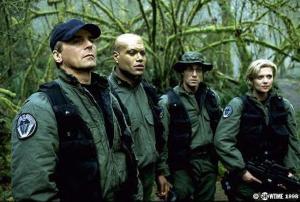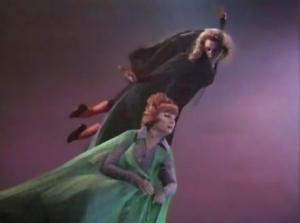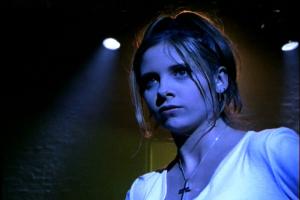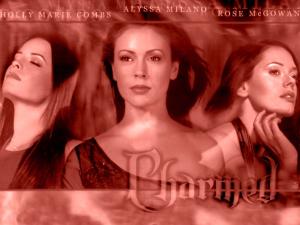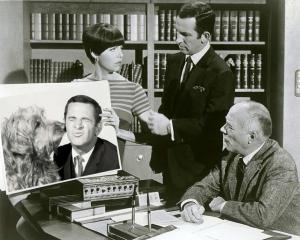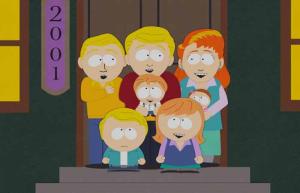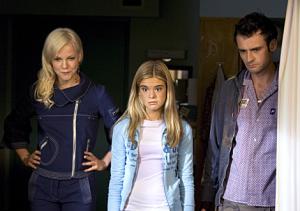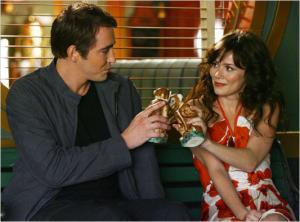The Series & Characters
Visit our main page for mpegs of the series.
|
The Series
Using a run-down bowling alley as a front, the all female Soul Patrol happens upon or is thrust into the minor and major injustices of today. Drafted by heaven itself, their mission is to help create more good souls for heaven. If the patrol should succeed, they will go on to heaven. If they should fail they will reincarnate as humans again or even lower life forms.
The patrol investigates the horrendous acts which humans inflict upon one another. Acts which go undetected or are out of the jurisdiction of human law enforcement agencies. The Soul Patrol are heaven's cops.
Using heavenly powers, the patrol discovers why people make the choices that they do and then punishes them in the most ironic of ways. (All in the hope that we learn our lesson.) These "ironic of ways" are not unlike the unexplainable phenomena featured in some television series such as The Twilight Zone or The X-Files. The Soul Patrol blames such phenomena, not on aliens, but on a higher level.
The Soul Patrol is not a traditional "angel" show. Angel shows are about wish fulfillment; how we wish that someone was watching out for us and the way we'd like the world to be. The Soul Patrol attempts to explore why the world is the way it is. The series is much more akin to Dragnet than say, Highway To Heaven.
The Soul Patrol deals only in the worst aspects of humanity and explains how & why they must exist (but always with a sense of humor and an uplifting attitude).
Details
The Soul Patrol investigates acts of human cruelty which have gone unpunished. Their job is to put the subject through a suitable ironic twist.
The patrol works for The Heavenly Order which is just like any other mammoth bureaucracy, not unlike the "Ministry of Magic" in the Harry Potter movies or the heaven portrayed in the British feature A Matter Of Life and Death (also known as Stairway To Heaven).
The Heavenly Order routinely issues redundant directives and incomprehensible memos. (Like the army in the feature film, M*A*S*H but much worse.) The Soul Patrol is just one of many understaffed patrols based on Earth.
Although they are human they have been granted special powers to assist them in their work. These powers include:
Spirit form - Where they can leave their bodies and invisibly watch events.
Flight - When they are out of their bodies they can also fly.
Read minds - Except many of their subjects are often blocked. (Well it can't be too easy!)
(When a patrol member reads someone's mind, the sound effect used is a homage to the ITC television series, The Champions, in which normal human beings were given heightened senses--which they used to fight crime of course! The sound effect signaled that a Champion was using one of their special powers; and beyond that, any similarity ends.)
While these powers may seem extensive, they are sometimes not enough to properly investigate or to change a subject's life. So, the patrol can call upon other members within The Heavenly Order to assist them. The Soul Patrol can (and will) add more members to its own ranks. Here is a list of the officers (and their powers) that they will add:
Prophet Officer - Can see into the future.
Reincarnation Clerk - Can read past lives.
Transformation Chief - Can materialize objects.
Projection Ensign - Can project memories or current images.
Time Cadet - Can take others through time.
In a way, the Soul Patrol has the same powers as in Star Trek except that these powers come from humans (& heaven) and not from machines. (There are no starships, phasers or holodecks here.) The Soul Patrol is more like the sailor senshi in the Japanese manga & anime, Sailor Moon. And like the sailor senshi, all of the Soul Patrol members are female. (The other patrols and The Heavenly Order have male & female members.)
The issue in the series is not that these are women making the decisions, but rather, that these are the choices that women can make.
But The Problem Is...
While it may sound like a terrific job (having all the power in the world) it can be very stressful. A patrol member realizes very quickly that with all this power comes a tremendous responsibility. Misused, they could be in a lot of trouble, in this life and the next. (Not unlike "the prime directive" in Star Trek.)
The job can be very frustrating. They know of heaven and can visit it but are still stuck on Earth. They're human and still have to go through all of the good and bad experiences which we do. Patrol members are human beings which have been drafted, born into, or transferred into a patrol. Participation is not mandatory, but is seldom refused. (It is rumored that those who have dropped out in the past have gone derelict or insane.)
Being human, the patrol often makes the wrong decision resulting in disastrous consequences, creating huge ethical dilemmas and, of course, drama. This is very much like what the SG-1 team faces in most episodes of the series, Stargate SG-1.
This sort of perfect secret society in our midst (Hey! Who's going to believe anyone who claims to work for heaven?) is not that different from how witches and warlocks or vampires and demons were portrayed in the television series, Bewitched and Buffy, The Vampire Slayer.
In Bewitched they had their own order, rules and caste system completely separate from all the white humans portrayed in the show. The witches and warlocks were separate and very unequal; feared and shunned but had dark, magical powers. (Of course this had nothing to do with the African American experience--which was not being televised at the time.)
It could be construed that members of The Heavenly Order might actually be beneath human beings in the pecking order of the planet; like the angels in the feature, Wings of Desire. But that is not the case. Each member, by their actions, determines how they shape up--albeit with much greater consequences than with your normal human!
God pays no money. Patrol members must maintain another job in order to pay for food and rent. The profits (if any) from their front, (which, in the Soul Patrol's case is) the bowling alley, pay for the hard cash expenses of the patrol. This situation is not unlike what the members of the secret agency CONTROL had to face in the comedy series, Get Smart. CONTROL continually went through budget cuts, strikes, pay disputes (and even closed down once) forcing most of its members (even its chief) to supplement their income via an extra day or night job.
This sort of treatment also pops up in the Spanish feature, Sin noticias de Dios (2001) (also known as, "Don't Temp Me" and "Bendito Infierno"). Heaven and hell are portrayed as business rivals with the latter being the winning brand but subject to a hostile, internal takeover by damned businessmen who want a more comfortable, less judgmental hell. The Devil wants to keep hell as originally intended, so that humans can have a definitive choice.
So How Is This Different?
The best example of how The Soul Patrol is different from other productions is to compare it with two of the most recent, popular, religious series on television: Touched By An Angel and Joan of Arcadia.
Touched By An Angel had some of the same themes but wouldn't explain why bad things still happen to the best of people. The Soul Patrol deals only in the worst aspects of humanity and explains how & why they must exist.
Joan Of Arcadia picked up where Touched By An Angel left off but reduced all of life's woes to a series of helpful, daily reminders. It was too convenient that Joan was a rich white girl, facing no real drama, conflict and excitement. (It's no wonder that Joan's age group couldn't relate.) None of the Soul Patrol members are rich and their work reduces them to minimum wage. Their version of Arcadia would be very different.
(One type of show not to be compared to, are series like The Book of Daniel that feature known religious figures which instantly cause objection from the faithful.)
Is this what we need right now? Are these shows good for the world? Will they help us understand what is going on around us? How will other people, with other points-of-view, react to such "entertainment" being forcibly beamed into their parts of the world, without their consent, powerless to stop it?
This is ultimately why The Soul Patrol is not about religion, heaven or deities. It's about human beings, being all too human.
Hopefully The Soul Patrol encourages us to reconsider what we are each doing in the world. This is no different than how the Broadway musical Wicked forces the audience to re-examine The Wizard Of Oz and the characters which populate fantasies.
This Is A Comedy?
While the The Soul Patrol honors and celebrates all religions it also finds humor within their differences--all in the hope that we find common ground.
This is the exact opposite of the animated series, South Park which has attacked all of the major religions (and then some)! While the two series cover the same topics, their approach couldn't be more different. Most of the time, South Park attacks first and then asks you to consider their position; The Soul Patrol, most of the time, takes your position and then presents a situation which may make you reconsider.
The Soul Patrol also satirizes and yet manages to play homage to reactionary cop shows such as the aforementioned Dragnet and its progeny, Walker, Texas Ranger. Hysterical, in the true sense of the word (look it up!), Walker was a reactionary show for the Clinton years and once that period ended the series had lost its purpose and audience. Predictably, a whole new audience is rediscovering the show today.
With its overly dramatic music, over-the-top conflicts and life & death situations, The Soul Patrol uses all of the conventions of the angel and reactionary cop genres to create a whole, new approach to explaining the human condition.
Characters
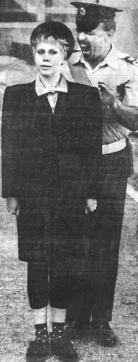 |
Lieutenant Patrol Leader, HOLLY VIOLET from England
Holly is a tormented soul struggling towards inner peace. Filled with rage and laughter, she is very much human. Although she was born into a patrol and has been a member of The Heavenly Order since birth, Holly shows few signs of being enlightened. (It would be hard to imagine how she would have turned out without all this heavenly experience. Maybe that's why she was born into a patrol?) For years, she's been trying to find peace through self-control (which she still resorts to), but has been teetering towards a "damn-it-all" stage.
Being made Lieutenant in such an important patrol is one of the best things that has ever happened to Holly. Initially jealous that she didn't get chosen to be the patrol leader, Holly settles for the politically safe #2 slot. And although this has cooled her anger for now, she will slowly seethe again (because of her superficial frustration with The Heavenly Order).
Holly used to think highly of The Heavenly Order. But even with the understanding that "this is all for our own good", and that being human "is just a step in the process of learning", etc., she finds herself really hating them. Holly hates them for all of the hell she has had to go through (when in actuality, she caused all of it herself). She's upset how heaven has refused to help humans (although even she realizes that we have created most of our own problems). But when placed in a position of power, Holly always wants the maximum punishment towards other humans--venting anger over her life upon others.
But Holly, like most of us, is a mass of contradictions. She has a tremendous need to help those (whom she feels have been unjustly treated by The Heavenly Order's daily wrath). But this is also an excuse to avoid her own problems.
Holly's love life is "D.O.A." She has a habit of falling in love with superficial (and unenlightened) men--of which there is a bountiful supply in her precinct. As time goes on, Holly will make an effort to keep love out of her life (it won't last for long).
Patrol Leader, BILLI ST. KILDA from Australia
Billi is a completely open, extremely aware, bright, warm individual. If Holly Violet represents what we are afraid we are, then Billi St. Kilda represents what we would all like to be.
Unlike other members of The Heavenly Order, Billi was drafted--which is the hardest way to go. It means that instead of being born into a patrol, (where you learn of The Heavenly Order as you grow) you are suddenly in it and learn all at once.
There are distinct advantages. Most valuable of which, is that you join with real-life experience and have not become disillusioned with The Heavenly Order. It's the most challenging avenue of entry into a patrol and, if successful, allows an easier route to becoming a higher life form.
And it's also the key to her character; to take the painful, but ultimately rewarding path to truth and happiness. It calls for a lot of self-examination, which Billi strives to do but in a humorous way. She'll sometimes poke fun at others (if only to have them reconsider their own motives), but will always reserve the most biting commentary for herself.
 |
She was born and raised in Broken Hill (a dying mining town in New South Wales, Australia). After dabbling with the art community there ("The Brushmen of The Bush"), first as an artist herself and then as a gallery employee, Billi moved to the big city, Melbourne. But the only job she could get was as a counter clerk in a candy store. She ended up really enjoying it.
Holly, with the help of other experienced Heavenly Order members, acquaints Billi to heavenly workings. She is not shocked or surprised by anything.
Billi quickly learns the ropes and recognizes Holly's problems but knows that there is nothing she can outwardly do to help. She must wait for opportunities to manipulate events to Holly's advantage. Billi recognizes that such events may appear bad but ultimately serve a purpose.
She is not a natural born leader but adjusts because of all the souls at stake. Her patrol gets the reputation of being in a mess and directionless. Billi gets a lot of abusive gossip, but does not let it get the better of her (though she is not above arranging a sweet little irony occur to her detractors).
Billi is continually at odds with Holly and The Heavenly Order concerning her job. She does great work but is too slow for them. Billi wants to fully investigate a subject before passing judgment. To them, Billi never seems to go with her intuition--which she actually does use constantly. It's only apparent to others when it comes time for creating the "suitable ironic twist."
Billi and her superiors in The Heavenly Order will eventually strike up a good relationship. She may not be in agreement with everything they do (who could?) but becomes attuned to how and why they work. They in turn begin to tolerate her.
She has had plenty of love in her life. Although currently unattached, Billi will one day verge into true, free love and will love everyone and everything. Holly will be disgusted (and protective of her).
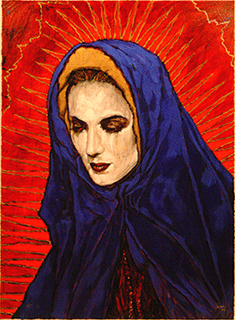 |
Projection Ensign, BLANQUI SANCHEZ from Latin America
Blanqui Sanchez is a short, sexy, hispanic fireball.
She has the least amount of hang-ups, sexually and socially, among the members of the patrol. Consequently, Blanqui believes that she has no agenda and relies upon the other members for "all that political stuff." But Blanqui does have an agenda, to bring all men to their knees.
Blanqui's not a feminist, she just simply relishes having so much power over men. She's good at it too. Just point her to a man that you need control of and he'll soon be putty in her hands.
She can look at a man and know which part to play: The virgin, the prostitute, the bitch, the saint--she loves the game. Sex itself is not that interesting to her; by then, it's all over. Blanqui is not romantic and loathes self-pity. When told by another of a failed romance, she sneers, "Get over it."
Blanqui loves to have fun, so L.A. "is fine" with her.
Unorganized, her desk in the office gets so messy that in one episode, Holly throws it out. Blanqui is delighted and never has a desk again. (Though she always makes a point to sit on Holly's desk.) Holly hates her. Blanqui doesn't care.
Born into the Carumba Patrol, Blanqui has only mediocre talent with special powers. She focused on being a projectionist since she likes being able to look in on people. ("It's a latin thing.") She can project the memories of other people but needs help with projecting past lives. Blanqui can also project the present by tapping into their sight and sound. She's particularly good at tapping in from a distance (up to a mile, depending upon circumstances). But she's bad at quality: Poor color (if any) and tinny sound. ("Don't hassle me okay?")
